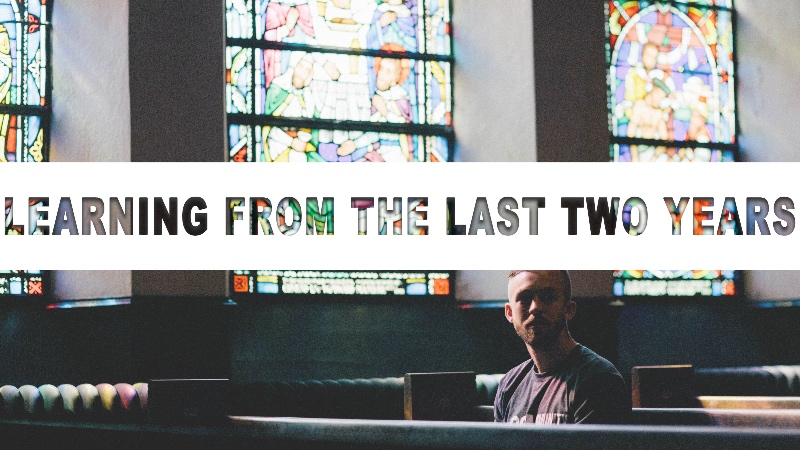Learning from the last two years
We are all desperate to move on from the last two years, but it can also be healthy to reflect on what we have learned during this difficult time, including about what it means to be church, writes Chris Norden.
I offer here some questions and observations – which I hope will encourage honest discussions among us.

What has gone well?
For a start, we are still here – most churches have at least kept going! To survive, we adapted to new technologies; we invested time and energy in communicating and connecting; we took our legal responsibilities seriously, doing our risk assessments and chivvying the reckless; we got involved in supporting those in particular need, perhaps through community partnerships or food deliveries; we may have hosted foodbanks or vaccine centres; we may have run online evangelistic courses such as Alpha; we encouraged the isolated and those struggling with poor mental health; and sometimes, sadly, we needed to do what we could to comfort the dying and the bereaved; and in all this we did our best to continue to worship, to break bread and share wine, and to proclaim the Gospel.
So … what does your church have to celebrate?
What has been a struggle?
Most churches – even the largest and best resourced – seem to have found children’s and youth work to be a particular challenge. If we managed only to keep the families of church members engaged during lockdown, we probably did well. We may also have struggled to restart activities due to lack of volunteers; the old 20/80 rule (“in church, 20 per cent of the people do 80 per cent of the work”) seems to have become more like 10/90. And the 10 are feeling the strain.
Keeping people together has been hard, with congregations split between ‘in person’ and ‘online’, and with some switching between the two depending on shifting preferences. And perhaps our hopes that the pandemic would lead to a noticeable upturn in personal spirituality or corporate prayer have been disappointed.
So … what does your church have to lament?
What have we got wrong?
I suggest that with hindsight we may have been too cautious. Admittedly I am basing this on limited data, but Baptist churches often seem to have been slower than others to reopen after lockdowns, and church members often seem to have been more cautious about meeting in person than those outside or on the fringes of our churches. For example, in our church we found that numbers were significantly down at our services this Christmas, but that the proportion of ‘outsiders’ present was higher than normal.
Why is this? Nationally, it might have something to do with our age profile. Or it might have something to do with our ecclesiology – congregational governance can make us used to moving very slowly and safely! Or it might have something to do with how we interpreted the thorough guidance from Baptists Together – perhaps we focussed too much on risk, and undervalued the blessings and benefits of meeting.
Or, most worryingly, it might be that somehow we lost sight of our true hope, that we began to think that protecting ourselves mattered more than proclaiming Christ, or that we were no longer collectively able to say “for me to live is Christ, to die is gain”.
The experience of our church was that we reached a point where we had to make choices between prioritising the more cautious preferences of some in the church vs. the less cautious attitudes of those we were trying to reach. This belatedly led us to be more adventurous – still considering risk and trying to mitigate it where possible – but not making the elimination of risk the over-riding consideration.
And God brought new people in. Some of our regular activities became more missional, in ways which may not have been possible if it were not for Covid, perhaps because the dynamics of the church had shifted. But with hindsight there were also opportunities we missed. And if I could relive this period (heaven forbid!) I would advocate upping our risk tolerance for the sake of reaching those who are without Christ and therefore without real hope. Because the risk that someone catches Covid in our buildings is surely less significant than the risk that we fail to live up to our Baptist duty “to bear personal witness to the Gospel of Jesus Christ, and to take part in the evangelisation of the world”.
So … what does your church have to repent of?
The Revd Chris Norden is minister of Haywards Heath Baptist Church
Do you have a view? Share your thoughts via our letters' page.
Baptist Times, 25/01/2022